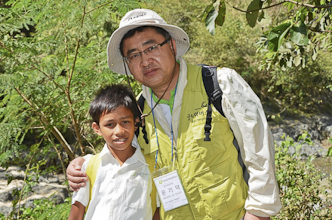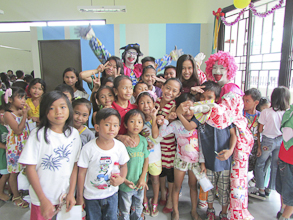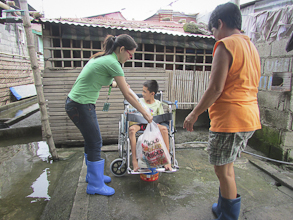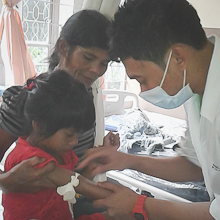 About
Projects
Stories
Work with Us
Donate
About
Projects
Stories
Work with Us
Donate
 ☰
☰
The direct sponsorship service provides children with quality education, good nutrition, and proper health care. The special protection program attends to children with special needs and severe illnesses.
GNIP’s operations take root mainly in its one-to-one child sponsorship program. As of December 2013, the number of sponsored children has reached 10,134 under the 11 CDP areas, from 266 sponsored children in 2008.
The sponsored children are provided with quality education, good nutrition, and proper health care. This
is achieved through an annual medical checkup and a regular distribution of school supplies, nutritional
items, and hygiene kits to sponsored children. The sponsored children are thoroughly monitored through
monthly updates, quarterly home visits, house tagging, spot mapping, service-rendered cards, and annual
progress reports. These tools are helpful not just in monitoring the children’s progress, development,
and services received but also in monitoring their present status. The main reason why children fall
under the dropout category is because they have moved out of the project area.


To update the sponsors about their sponsored children’s status, GNIP organizes an Annual Child Letter (ACL) activity with the help of the community development committee/community sponsorship facilitators (CDC/CSF). The ACL is a way through which the children share their stories and express their appreciation to their sponsors in forms of letters and drawings. The sponsors are also given the opportunity to send special gifts to their sponsored children—they could be in the form of a gift, money, or a letter (GML). And every December, GNIP conducts a Christmas party for all the sponsored children in the respective CDPs. The sponsorship program has allowed GNIP to reach out to around 80,000 people from its CDP areas through community development programs.
GNIP organizes child rights clubs (CRCs) composed of children (youth) in its community development
project (CDP) areas to provide a venue for children to express their concerns, issues, and needs and to
plan out activities that will promote awareness on child issues to their fellow children.
[1] Qualified children from 2 to 12 years old whose family’s aggregate income is below the poverty line
[2] Father, mother, brother, sister, legal or permanent guardian of the sponsored children
[3] Children who live in GNIP CDP areas but do not receive the same benefits as the sponsored
children

